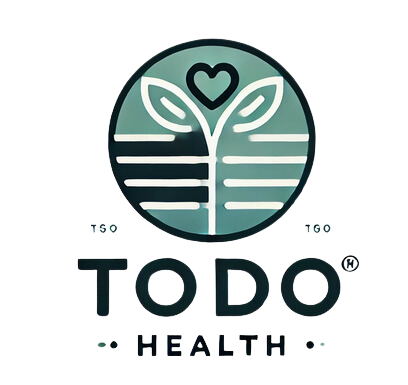In today’s health-conscious world, boosting immunity is on everyone’s radar—especially during flu season, travel, or high-stress periods. While supplements like vitamin C, zinc, and elderberry often dominate the conversation, you don’t need to rely on pills to strengthen your immune system. The truth is, your body has an incredible ability to defend itself—if you give it the right tools.
For readers in the USA and UK looking for practical, natural ways to enhance immune health, the answer lies in your daily habits. A strong immune system doesn’t require expensive products or trendy remedies. It requires consistency, nourishment, and balance. Here’s how to naturally support your body’s defenses without reaching for a supplement bottle.
1. Prioritize Quality Sleep Every Night
Sleep is one of the most underrated immune boosters. During deep sleep, your body releases cytokines—proteins that help fight infection, inflammation, and stress. Chronic sleep deprivation reduces these protective proteins and weakens your immune response over time. People who consistently sleep fewer than 7 hours per night are more likely to catch colds and recover slower from illnesses.
What to do: Aim for 7–9 hours of quality sleep every night. Keep a consistent sleep-wake schedule, even on weekends. Create a calm evening routine by dimming the lights, reducing screen time, and avoiding heavy meals late at night. Make your bedroom a quiet, cool, dark environment that supports restful sleep.
2. Eat a Colorful, Whole-Food Diet
Your immune system thrives on nutrient-rich, whole foods. Instead of focusing on one “superfood,” aim to include a variety of colorful fruits and vegetables in your meals. These provide essential antioxidants, vitamins, and minerals that support white blood cells, repair damaged tissues, and protect against free radicals.
What to do: Fill half your plate with vegetables at every meal. Include dark leafy greens (like spinach and kale), orange foods (like sweet potatoes and carrots), and berries (like blueberries or strawberries) regularly. Add garlic and onions to your meals—they contain compounds known to enhance immune defense naturally.
3. Stay Consistently Hydrated
Water is essential for flushing out toxins, transporting nutrients, and keeping your mucous membranes moist—which is your body’s first line of defense against pathogens. Even mild dehydration can impact your immune system’s ability to function optimally.
What to do: Drink plenty of plain water throughout the day. Herbal teas and water-rich foods like cucumbers, watermelon, and oranges also contribute to hydration. Aim for at least 6–8 cups daily, and more if you’re active or live in a dry climate.
4. Move Your Body, But Don’t Overdo It
Moderate, consistent physical activity supports immune function by increasing circulation and reducing inflammation. It also helps manage stress, regulate blood sugar, and improve sleep quality. However, excessive or high-intensity workouts without recovery can do the opposite and suppress immune function temporarily.
What to do: Aim for at least 30 minutes of moderate movement 5 days a week. This can include walking, cycling, yoga, dancing, or light strength training. Listen to your body—rest is just as important as movement.
5. Manage Stress With Intentional Practices
Chronic stress releases cortisol, which can suppress immune responses and promote inflammation. While short bursts of stress can be helpful (like in workouts), ongoing mental or emotional stress takes a toll on your body’s ability to fight off infections.
What to do: Incorporate daily stress-reducing habits like deep breathing, journaling, spending time outdoors, listening to music, or practicing mindfulness. Even 5–10 minutes a day can reset your stress response and protect your immune system.
6. Focus on Gut Health
Around 70% of your immune cells are located in your gut. A healthy gut supports immune regulation, reduces inflammation, and helps block harmful pathogens. Poor diet, lack of fiber, and overuse of antibiotics can throw off this balance and weaken your defense system.
What to do: Eat fiber-rich foods like oats, lentils, apples, and chia seeds. Include fermented foods such as yogurt, kefir, sauerkraut, and kimchi to feed your gut bacteria. Avoid heavily processed foods and excess sugar, which can damage the gut lining and increase inflammation.
7. Spend Time Outdoors Every Day
Getting fresh air and natural sunlight boosts mood, lowers stress, and helps your body produce vitamin D—an essential nutrient for immune health. You don’t need to sunbathe for hours; even 15–20 minutes a day can make a difference.
What to do: Step outside in the morning or midday, when sunlight is most beneficial. Take walks in green spaces, sit by a sunny window, or garden if you enjoy hands-on activities. On cloudy days, try to keep blinds open to maximize exposure to natural light.
8. Practice Good Hygiene (But Don’t Overdo It)
Basic hygiene is your first physical defense against viruses and bacteria. Washing hands, brushing your teeth, and cleaning your surroundings reduce the spread of pathogens. That said, over-sanitizing can strip your skin microbiome and disrupt your natural barrier.
What to do: Wash your hands with soap and water for 20 seconds before eating and after returning home. Use hand sanitizer when needed, but don’t overuse it. Keep your home clean, but skip harsh chemical cleaners unless necessary.
9. Avoid Smoking and Limit Alcohol
Both smoking and excess alcohol intake weaken your immune system by impairing white blood cell function, reducing antioxidant levels, and damaging the gut lining. Cutting back or quitting these habits can significantly improve your body’s ability to fight off infections.
What to do: If you smoke, seek support to quit—your immune system will start improving within weeks. Limit alcohol to moderate levels (1 drink a day for women, 2 for men), and hydrate well if you choose to drink.
10. Stay Connected Socially
Positive social interaction has a powerful effect on your immune system. Loneliness and isolation can increase inflammation and weaken immune responses over time. Even small moments of connection can improve your mood and immune resilience.
What to do: Reach out to friends or family regularly, even if it’s just a quick check-in. Join a community group, volunteer, or spend time with pets. Prioritize relationships that bring you comfort, joy, and laughter.
11. Support Your Circadian Rhythm
Your body operates on an internal clock that regulates hormones, metabolism, and immune function. Disruptions to your circadian rhythm—like staying up too late or inconsistent wake times—can lower your immune defenses.
What to do: Go to bed and wake up at roughly the same time every day. Dim lights at night and get sunlight exposure in the morning. Avoid blue light from screens at least an hour before bed to help melatonin production.
12. Eat Less Sugar and Processed Foods
Excess sugar, especially from processed foods and sweetened beverages, can impair the function of immune cells and promote inflammation. It also feeds harmful gut bacteria, leading to imbalance and digestive issues.
What to do: Limit added sugars by cutting back on sodas, pastries, and processed snacks. Choose natural sources of sweetness like fruit, and make homemade versions of your favorite comfort foods using whole ingredients.
You don’t need supplements to support a strong immune system. Your body already knows how to protect itself—it just needs your help. By sleeping well, eating real food, managing stress, and supporting your gut and circadian rhythms, you create the ideal conditions for your immune system to do its job.
Health isn’t built in one day. It’s the result of the small choices you make every day. Start with one or two changes and build from there. The more you support your body naturally, the less you’ll have to rely on quick fixes later.





